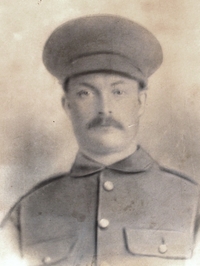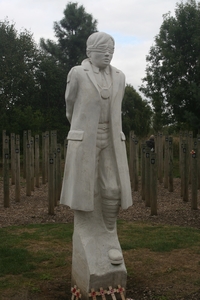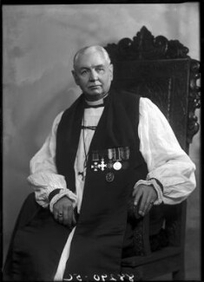Stories of Worcestershire People

Frederick Dancox
Private Fred Dancox was one of four Worcestershire men to be awarded the Victoria Cross during the First World War. He came from Worcester and was in the 4th Battalion Worcestershire Regiment. His VC was announced for his bravery at the Battle of Poelcapelle near Ypres on 9th October 1917. He was due home on leave in December but was killed on 30th November 1917.
Click here for more information about Private Dancox

Albert Pitts, Warwickshire Regiment
No. 6747 Private Pitts of 2 Battalion Royal Warwickshire Regiment was one of nine men associated with Worcestershire to be executed during the war. Pitts was from Bengeworth, near Evesham and worked as a drayman for a local market gardener. He was 30 and married to Annie, with three children - Arthur (7) Dorothy (5) and unnamed younger child. He had served in the army for 12 years before rejoining at the outbreak of war. He was tried for desertion, having left his regiment in October 1914 and being arrested at Boulogne in January. Rumours abounded in Evesham as to his fate and the Journal printed his last letter to his wife on 6 March 1915, a month after his execution by firing squad.
In his letter he said 'I expect this will be the last letter from me, my dear, as I have got to be shot for being absent; but I could not help it.' Mrs Pitts had had 2 earlier letters: at the end of November he wrote from Calais he had been lost for two weeks; on 1 December he wrote that had not had chance to find his regiment; and on 21 January he said he had not received the Christmas parcel his wife had sent.
Annie received his last letter on 5 March. In it Pitts said 'You must try and do your best for the kiddies. I [you] should not upset myself [yourself]. My dear I did my duty before I was absent. It has all been trouble with us. I was very unlucky. I am so sorry to have to write a letter like this.' And later ...'Try and forget me, for your brokenhearted husband'.
Click here for an Information Sheet about Worcestershire's 10 Soldiers Shot at Dawn
Bishop William Cash DSO, OBE, DD
A number of churchmen associated with Worcestershire served during the war, most famously Geoffrey Studdert Kennedy, Woodbine Willie, who is buried in St John's cemetery, Worcester.
For details of the Woodbine Willie Heritage Trail click here.

One of these several Chaplains or Padres was William Cash who was appointed Bishop of Worcester in 1941 and whose portrait hangs in the Great Hall at Hartlebury Castle. https://hartleburycastletrust.org/
William spent his early life largely in the Middle East, involved in missionary work, mainly in Egypt and Palestine where he wrote several books on Islam. He served with the Army from 1915, commissioned as Temporary Chaplain to the Forces (T.C.F.) 4th Class (ranking as an Army Captain) on June 1st 1916 and posted to The Middle East, arriving in Egypt on 16th June 1916. He was subsequently promoted to Chaplain to the Forces (2nd Class) at an Army rank of Lt Colonel (without extra pay and allowances) from 1st December 1916.
He was ‘Mentioned in Despatches’ five times (at least twice in 1918) and was awarded the Distinguished Service Order for meritorious and distinguished service during active operations against the enemy. He was also awarded an OBE a short while later.
His DSO awarded for action in 1916 was said to be because he ‘Alone, single handed and unarmed he went upstairs into a chamber occupied by the enemy, and by his pluck and by his fearlessness won their surrender in an event which might easily have ended in his death’.
Cash was with General Allenby on his famous walk into Jerusalem after its recapture by the Allied Forces and he preached at the thanksgiving service on Christmas Day 1917.
(Thanks to grandson David Cash for details and photo)